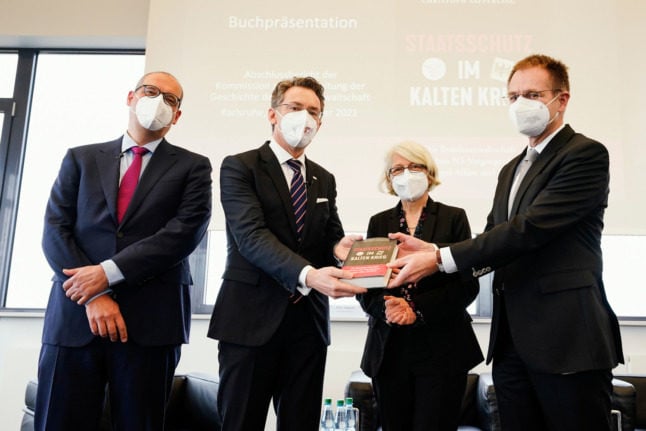His death in hospital in Cologne followed a bad fall at his home several weeks ago, a spokeswoman for the Kiepenheuer & Witsch publishing house told AFP.
Born to a German-Jewish mother and a Sicilian father in 1923, Giordano's life nearly spanned the century of bloody upheaval in Germany in which the Nazi and communist dictatorships exacted a heavy toll.
A passionate Ferrari driver with an impressive mane of white hair, Giordano weighed in on the most divisive issues of those tumultuous decades in 23 books and countless newspaper articles and rarely skirted controversy.
Culture Minister Monika Grütters said the country had lost a "potent and contentious character in Germany's political culture" who prodded the nation "toward a self-critical and rigorous reckoning with our past".
The experiences of his youth, in which he had to hole up with his family in a friend's cellar in the northern port city of Hamburg to avert his mother's deportation to a concentration camp, lent searing urgency to his warnings about the reappearance of far-right ideology and anti-Semitism.
The Giordano family, which nearly starved in hiding, was liberated on May 4, 1945 by the British army.
"It was a time of my life that marked everything I did after that," he said.
He opted to stay in Germany after the Second World War, soon joining the communist party, but grew estranged by Stalinist abuses.
Complex politics
His 1982 semi-autobiographical novel "Die Bertinis" recounted the persecution incurred by a German-Italian Jewish family under Hitler.
However he touched off a storm of criticism in 2007 with his vocal opposition to the building of one of the biggest mosques in Europe in Cologne.
Saying that Muslim women "veiled from head to toe" looked like "human penguins," Giordano found himself in uncomfortably close company with a right-wing citizens' group called "Pro-Cologne" which waged an anti-foreigner campaign against the mosque.
He came to the defence of Nobel prize-winning author Günter Grass when he admitted in 2006 that he had served in the Nazis' notorious Waffen SS elite force in the final months of the Second World War.
"What else could he have become during that time in the face of the Nazis' all-powerful propaganda apparatus? Nothing," Giordano asked.
"I believe he suffered terribly for keeping his silence about this."
Giordano expressed horror when it emerged in 2011 that a string of immigrant murders had been carried out by the NSU neo-Nazi cell under the noses of the German authorities.
"It makes me worry about the state of our democratic republic – the only societal form under which I can feel safe," he said.
Giordano was married three times, having lost two of his wives to cancer.



 Please whitelist us to continue reading.
Please whitelist us to continue reading.
Member comments